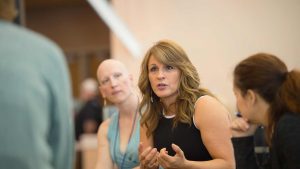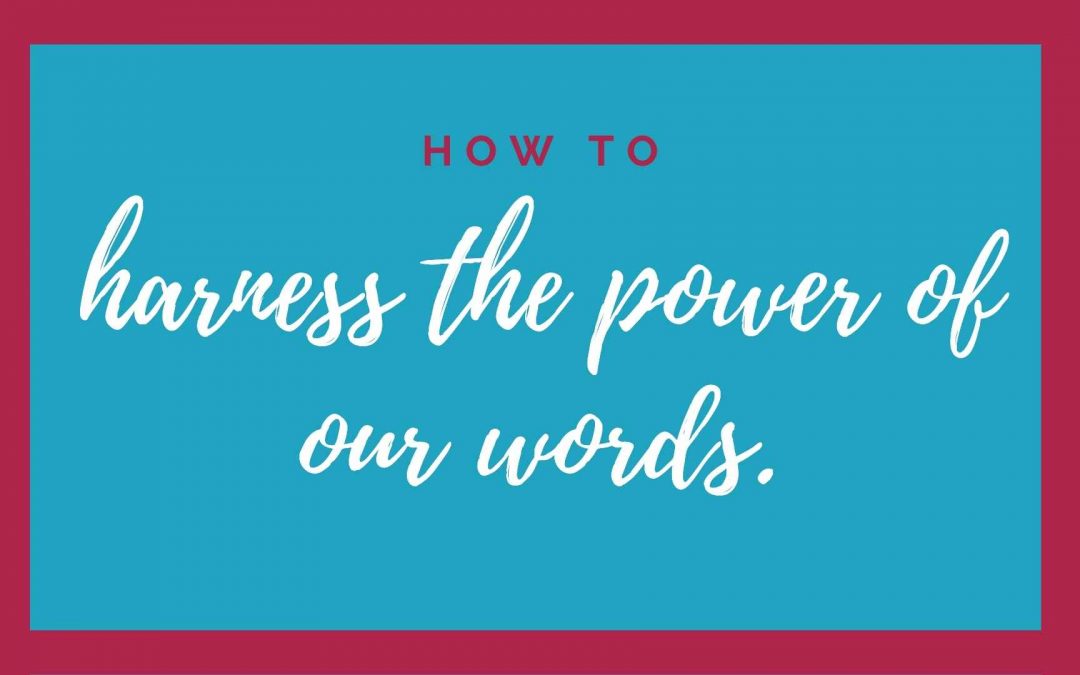Words matter.
I encourage people to choose their words wisely, because the words we choose have a powerful effect on other people. As this post showed, the words we choose matter not only for teachers, but for anyone else who plays an important role in someone’s life.

Some decry “political correctness” when a class of people seeks to change the words we use when referring to them. But as Aimee Mullins, a world-class athlete, actress and activist discussed in a 2009 TEDMED talk titled, “The Opportunity of Adversity,” we must think carefully about the values our words convey.
Mullins read from a decades-old thesaurus the synonyms for “disabled.” They were hideous, and conveyed low value and little hope for any human being pinned with this label. Before anyone could dismiss these values as relics of a less-enlightened era, Mullins read from a modern thesaurus, and the words had not changed much.
Here is the current thesaurus.com entry for disabled:
broken-down, confined, decrepit, disarmed, hamstrung, handicapped, helpless, hurt, incapable, infirm, laid-up, lame, maimed, out-of-action, out-of-commission, paralyzed, powerless, run-down, sidelined, stalled, weakened, worn-out, wounded, wrecked
What upset Mullins, she said, weren’t the words themselves, buy
xanax online but rather “the values behind the words and how we construct those values.”
For a child to overcome the low expectations set by labels or value constructs, Mullins said,
“all you really need is one person to show you the epiphany of your own power and you’re off. If you can hand somebody the key to [her] own power, the human spirit is so receptive, if you…open a door for [people] at a crucial moment, you are educating them in the best sense. You are teaching them to open doors for themselves.”

If empowering students to reach their true potential is the root of education, how do educators do so?
If we choose our words wisely, our language can help students envision success, stretch their thinking, and advance independent behaviors and actions.
Like any skill, the careful choosing of words develops over time, and takes practice. The following tips can help build your awareness of the words you use and help you harness the power of our words.
- Hit Record! — With free recording tools such as Audacity, it is easy to record the actual words you use in the classroom. Record, and play them back to yourself. Hear the words you speak, as well as the tone and context of that dialogue.
- Lesson Language — While lesson planning, take a few minutes to think through the language you are going to use with students. Often we think we are modeling skills and strategies for students when we are really just telling and assigning, The few minutes we spend thinking through our language can impact the flow and dynamics of the instruction.
- Repeat, Repeat, Repeat — Phrases — Keep your radar up for repeated words and phrases. These mantras resonate in students independent work. Be alert to the language not advancing student independence. Ask a colleague to listen in as it helps to have two ears at work.
- Breathe — Before speaking, take a few seconds to plan words carefully. Think about what we could say that would encourage, stretch, challenge, and acknowledge our students thinking and contributions.
- Build Collective Intelligence — Invite colleagues to join in. Great things can come out of a brainstorming session.


